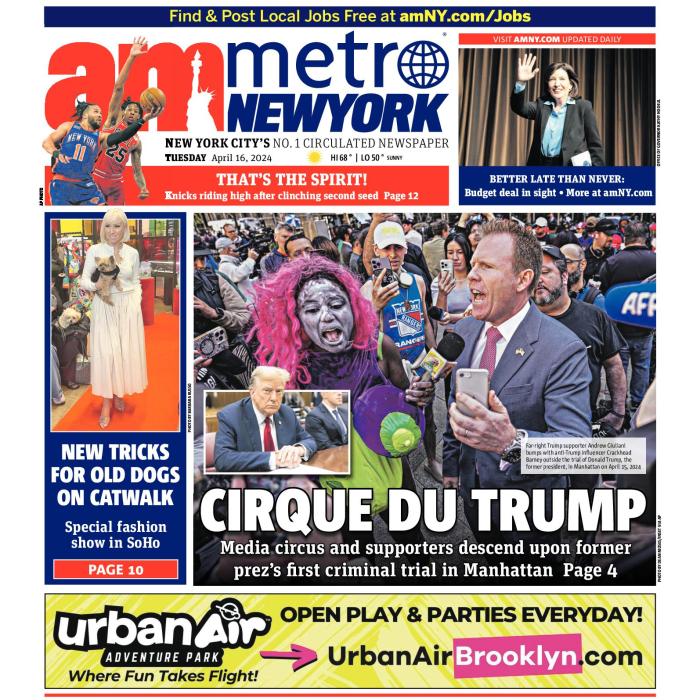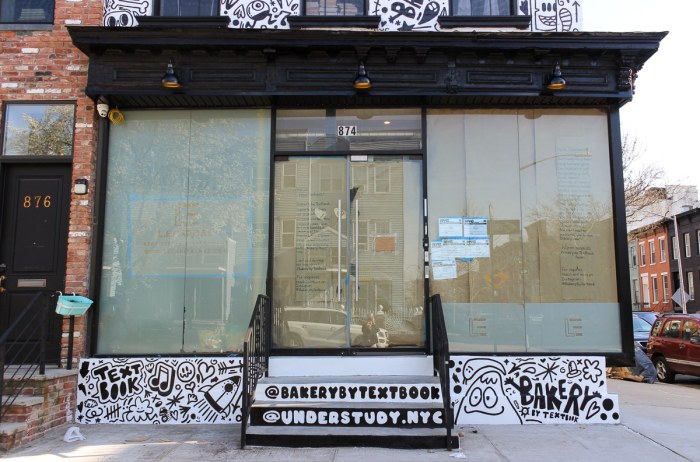
‘True West’ runs through March 17 at the American Airlines Theatre. 227 W. 42nd St., roundabouttheatre.org.
For an effective, low-cost introduction to “True West,” Sam Shepard’s gripping 1980 drama of sibling rivalry, I recommend the 1984 television film adaptation with John Malkovich and Gary Sinise or the 2001 audio recording with Alfred Molina.
Both can easily be found online and are far preferable to the play’s problematic new Broadway revival, which is directed by James Macdonald (“The Children”) and stars a top form Ethan Hawke (in his first Broadway outing since a disastrous “Macbeth” in 2013) and an utterly miscast Paul Dano (“Ruby Sparks”).
This marks the first Broadway revival of any of Shepard’s numerous plays since the playwright’s death in 2017. Considered one of his finest works, “True West” is part of a “Family Trilogy” that also includes the Pulitzer-winning “Buried Child” and “Curse of the Starving Class” (which is about to receive a new Off-Broadway production).
A kitchen-sink drama, packed with serious philosophical queries, “True West” studies the mutable relationship between older brother Lee (Hawke), a penniless drifter, drunk and thief, and younger brother Austin (Dano), a hardworking screenwriter and clean-cut family man.
At the start, Austin is housesitting for their absent mother (Marylouise Burke, who makes a brief cameo) and at work on his latest writing project. Along comes Lee, who manages to convince a cocky Hollywood producer (Gary Wilmes) to ditch Austin’s project and instead develop Lee’s half-baked, nonsensical idea for a Western flick in which two men chase each other through “tornado country.”
This results in Austin and Lee working together on Lee’s story and (over time) a complete reversal of roles, with Lee pounding away at the typewriter and Austin getting hopelessly drunk and expressing a desperate longing to escape to the desert, where their long-absent father also happens to live. The ending is violent, ambiguous and surreal.
Ideally, the actors playing Austin and Lee should be able to play either role, in keeping with the idea that the characters represent two sides of the same person. In fact, in a 2000 Broadway revival, Philip Seymour Hoffman and John C. Reilly switched roles from performance to performance.
Here, one gets no sense that Hawke and Dano are related by blood. Dano gives a stiff and superficial performance in which he repeatedly crosses his arms to convey discomfort. Dano is also unable to credibly execute the role reversal, which all but ruins the second half of the play, robbing it of its excitement and brutality.
On the other hand, Hawke is an ideal Lee — rough, raw, physical, mischievous and dangerous — which makes one wonder what this production (despite some tacky design elements) might have achieved had Hawke received a different sparring partner. As it happens, Kit Harington (“Game of Thrones”) is currently playing Austin in a separate London production. How about some mix and match casting?














